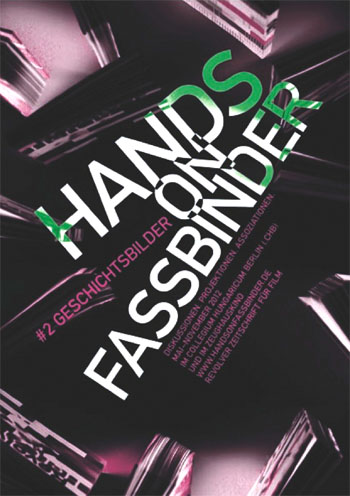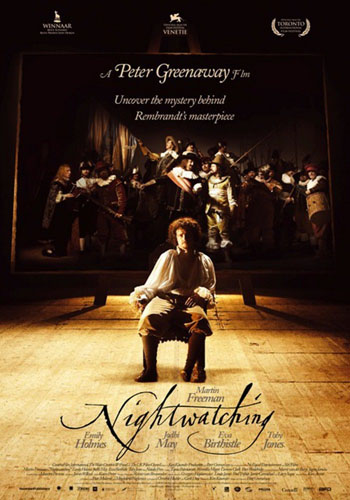Lets’s begin in Berlin, because this is going to be a busy week for the Hands on Fassbinder extravaganza presented by the German film magazine Revolver, the Collegium Hungaricum Berlin, the Rainer Werner Fassbinder Foundation, and the Zeughauskino. While historical perspectives are definitely taken into account, the focus of this seven-month-long program is on “the context of the present,” that is, less on the mythology of Fassbinder the person and more on the work “as a point of departure for political and cultural visions.”
Tonight sees a screening of The Merchant of Four Seasons (1972), followed by Veronika Voss (1982) on Tuesday, Géza Bereményi’s Eldorádó (1988) on Wednesday, Thomas Heise‘s Stau: Jetzt Geht’s Los (1992) on Thursday, and Four Seasons and The Third Generation (1979) on Friday. On Saturday, June 9, a weekend of discussions begins with a conversation between Hanna Schygulla and Géza Bereményi moderated by director, actor and writer János Can Togay. On Sunday, June 10, the day that marks the 30th anniversary of Fassbinder’s death, Revolver‘s Saskia Walker will talk with Thomas Heise, who’ll show clips from his films, including the amazing Material (2009). Sonja M. Schultz will discuss Lili Marleen (1981), and then I’ll be moderating a discussion with Thomas Elsaesser (author of Fassbinder’s Germany. History, Identity, Subject, among many, many other books), Manfred Hermes (Deutschland hysterisieren. Fassbinder, Alexanderplatz), J. Hoberman (whose most recent book is An Army of Phantoms: American Movies and the Making of the Cold War), and Verena Lueken, film critic and journalist for the Frankfurter Allgemeine Zeitung.
As I mentioned a few days ago, Cruelly, Madly, Deeply: The Films of Rainer Werner Fassbinder is a series running at the Egyptian Theatre in Hollywood and the Aero Theatre in Santa Monica through June 14. Then it’s on to New York, where, as part of the Overdue Film Series, critics Nick Pinkerton and Nicolas Rapold have programmed three nights of Fassbinder double features. June 28: The Merchant of Four Seasons and Fear of Fear (1976); June 29: Beware of a Holy Whore (1971) and Satan’s Brew (1976); and June 30: Veronika Voss and Fox and His Friends (1975).
A quick aside here. Back in 2008, I noted that Marco Kreuzpainter was planning to start shooting a film based on the life of Fassbinder in early 2009. Well, according to Scott Roxborough in the Hollywood Reporter, he’s still trying to get that project off the ground: “Kreuzpaintner said his film Rainer would not be a biopic but more a ‘melodrama in Fassbinder’s style. It will be a homage to his movies,’ the Kreuzpaintner explained. ‘But we want to show the real Fassbinder, will all the dirt, drugs and excess.'”
Back to Los Angeles. As he announces at Movie Morlocks, Richard Harland Smith will be at the New Beverly Cinema in West Hollywood tonight “to help present a double bill of Joseph Losey‘s The Damned (US: These Are the Damned, 1961) and Joe Cornish’s Attack the Block (2011). The two films, which I hold in very high regard, are great screen partners, focusing as they do on what might be termed juvenile delinquents (though the lawbreakers in the former are more in the young adult demographic) who find themselves caught up in extraordinary circumstances—a fiendish scientific conspiracy on the one hand, an alien invasion on the other—that point the viewer to the obvious conclusion that we never know who the heroes will be until we know what the villains will do.”
Also tonight, as Veronika Ferdman notes for the Weekly, “the L.A. Filmforum will be hosting the long overdue Los Angeles premiere of Peter Greenaway‘s Rembrandt’s J’Accuse (2008) at the Spielberg Theatre (which is housed inside of the Egyptian). And two weeks later, on June 17th, Nightwatching (2007) will also finally be given its premiere at the same location. Both of these films are essential and vital works of contemporary cinema that must be seen.”
Zagreb. The Stop & Go 3-D show is at the Museum of Contemporary Art through June 22.
Books. David Wolf in the Los Angeles Review of Books: “Geoff Dyer’s Zona is a scene-by-scene analysis of Tarkovsky‘s Stalker. Adam Mars-Jones’s new book, Noriko Smiling, is an equally detailed essay on Ozu’s film Late Spring (1953). Both books are short. Both are smart and often funny. Both are written with a gatecrasher sensibility (to borrow one of Dyer’s favorite self-descriptions). They are attempts by self-declared non-experts to steal these works of art back from overly protective critics, and to bring them down to earth for the rest of us to appreciate. Dyer has no time for ‘the reverence that Tarkovsky tends to invite from his admirers.’ Adam Mars-Jones is even more forceful. He pays his respects to critics better versed in Japanese culture, and then kicks them in the ribs. His defense? ‘Sometimes works of art need to be defended against their advocates, and great films rescued from their reputations.'” See, too, Jonathan Marlow‘s interview with Dyer.
DVDs. In the New York Times, Dave Kehr reviews three new releases from the Warner Archive, all directed by Tod Browning and all featuring Lon Chaney: The Blackbird (1926), West of Zanzibar (1928) and Where East Is East (1929). If Chaney “had a thousand faces,” writes Kehr, “he, like many great stars, had essentially only one story to tell. In film after film he plays an outcast, exiled because of a physical deformity to live on the margins of society, whose monstrous appearance disguises a great tenderness of feeling. He focuses his yearnings on a beautiful young woman, who remains blind to the depth of his love and the greatness of his soul. Inevitably she discards him in favor of the nearest handsome, callow youth, choosing superficial beauty over wisdom and sensitivity. Hey, we’ve all been there, and Chaney’s ability to transform this universal human experience of longing and rejection into vivid drama remains as seductive as ever.”
For news and tips throughout the day every day, follow @KeyframeDaily on Twitter and/or the RSS feed. Get Keyframe Daily in your inbox by signing in at fandor.com/daily.





